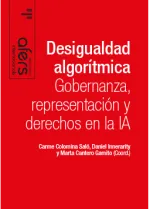The other geopolitics of AI

Carme Colomina Saló, investigadora sénior y editora, CIDOB; profesora asociada, College of Europe (Bélgica). ccolomina@cidob.org. ORCID: https://orcid.org/0000-0003-3848-4242
Marta Galceran-Vercher, investigadora sénior, CIDOB; profesora asociada, Universitat Pompeu Fabra (Barcelona). mgalceran@cidob.org. ORCID: https://orcid.org/0000-0003-4991-1369
The rise and deployment of artificial intelligence (AI) is having an exponential impact on the process of transformation and realignment of global geopolitics. While the United States, China and to a lesser extent the European Union (EU) are leading the “race” to develop AI in a climate of confrontation, the technological development of AI is much more multifaceted and global than the geopolitical discourse of the major powers, with emerging actors and ecosystems that should not be underestimated. In line with the calls to create more inclusive frameworks of global AI governance, this paper explores what role the Global South plays in the geopolitics of AI. It analyses the spaces, actors and concerns currently overlooked in the dominant discourses on the geopolitics of AI, perspectives that are essential to understand how algorithmic systems are going to develop in the coming years.
Key words: geopolitics, artificial intelligence (AI), tech giants, regulation, governance, Global South, data, actors, discourses, digital colonialism, peripheries
How to cite this article: Colomina Saló, Carme y Galceran-Vercher, Marta. «Las otras geopolíticas de la inteligencia artificial». Revista CIDOB d’Afers Internacionals, n.º 138 (diciembre de 2024), p.27-50. DOI: doi.org/10.24241/rcai.2024.138.3.27
Revista CIDOB d’Afers Internacionals, nº 138, p.27-50
Quadrimestral (October-December 2024)
ISSN:1133-6595 | E-ISSN:2013-035X
DOI: https://doi.org/10.24241/rcai.2024.138.3.27
>> The full text articles of this issue are available only in Spanish language